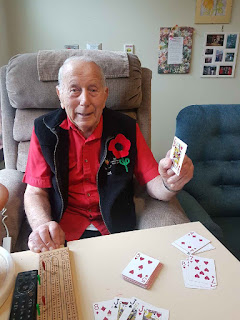Liberal wave washes over most of urban B.C.
The Liberal wave hit B.C. in a big way, as it did in most parts of Canada.
In B.C., the Liberals won in most urban areas, but the extent of their win shows just how urban B.C. has become. For example, Kelowna-Lake Country, a conservative bastion for generations, went Liberal. So did four of the five Surrey seats, Delta, and a seat which straddles Burnaby and North Vancouver. Pitt Meadows-Maple Ridge and Coquitlam-Port Coquitlam are also now Liberal.
In most of those areas, there has not been a Liberal MP since Louis St. Laurent was prime minister.
Four Vancouver seats, one in Richmond, and two other North Shore seats are also Liberal - as is, quite surprisingly, Mission-Matsqui-Fraser Canyon. That may be the most rural seat of the 17 the Liberals won.
They still have a chance at an 18th seat- incumbent NDP MP Kennedy Stewart is barely ahead of his Liberal rival Adam Pankratz in Burnaby South, with a number of polls still to be counted, as this is written.
The NDP are still powerful in B.C., but the party clearly lost a lot of ground to the Liberals, particularly in the Greater Vancouver area. The media coverage and web campaigns calling for strategic voting hurt the NDP deeply.
Assuming that Stewart holds his seat, the NDP will have 14 B.C. seats, up two from 2011. However, there are six new ridings in B.C., so the party really has gone backwards - but not as badly as it did in other parts of Canada. The NDP lost all its seats in Atlantic Canada, most of its Quebec seats and did not do well in Ontario. Almost one-third of the much-reduced NDP caucus will be from B.C.
The Conservatives lost badly in B.C., particularly in Greater Vancouver. The departure of James Moore helped the Liberals win in Coquitlam-Port Coquitlam, but the anti-Conservative vote, which was significant, clearly coalesced around the Liberals.
The Conservatives' only real strongholds were in the Fraser Valley and the interior. The Liberals poked a hole in those two areas of strength, winning one seat in each area. The Conservatives won 10 seats in B.C. Probably the party's best result was former Surrey mayor Dianne Watts' narrow win in South Surrey-White Rock.
Green Party leader Elizanbeth May easily won her Saanich-Gulf islands seat, but the Greens didn't do much elsewhere. They too were victims of strategic voting. Mission-Matsqui-Fraser Canyon Green candidate Arthur Green told me on election night that even some of his friends abandoned him, choosing to vote strategically.
It will be interesting to see which of B.C.'s newly-elected Liberals make it into a Justin Trudeau cabinet.
In B.C., the Liberals won in most urban areas, but the extent of their win shows just how urban B.C. has become. For example, Kelowna-Lake Country, a conservative bastion for generations, went Liberal. So did four of the five Surrey seats, Delta, and a seat which straddles Burnaby and North Vancouver. Pitt Meadows-Maple Ridge and Coquitlam-Port Coquitlam are also now Liberal.
In most of those areas, there has not been a Liberal MP since Louis St. Laurent was prime minister.
Four Vancouver seats, one in Richmond, and two other North Shore seats are also Liberal - as is, quite surprisingly, Mission-Matsqui-Fraser Canyon. That may be the most rural seat of the 17 the Liberals won.
They still have a chance at an 18th seat- incumbent NDP MP Kennedy Stewart is barely ahead of his Liberal rival Adam Pankratz in Burnaby South, with a number of polls still to be counted, as this is written.
The NDP are still powerful in B.C., but the party clearly lost a lot of ground to the Liberals, particularly in the Greater Vancouver area. The media coverage and web campaigns calling for strategic voting hurt the NDP deeply.
Assuming that Stewart holds his seat, the NDP will have 14 B.C. seats, up two from 2011. However, there are six new ridings in B.C., so the party really has gone backwards - but not as badly as it did in other parts of Canada. The NDP lost all its seats in Atlantic Canada, most of its Quebec seats and did not do well in Ontario. Almost one-third of the much-reduced NDP caucus will be from B.C.
The Conservatives lost badly in B.C., particularly in Greater Vancouver. The departure of James Moore helped the Liberals win in Coquitlam-Port Coquitlam, but the anti-Conservative vote, which was significant, clearly coalesced around the Liberals.
The Conservatives' only real strongholds were in the Fraser Valley and the interior. The Liberals poked a hole in those two areas of strength, winning one seat in each area. The Conservatives won 10 seats in B.C. Probably the party's best result was former Surrey mayor Dianne Watts' narrow win in South Surrey-White Rock.
Green Party leader Elizanbeth May easily won her Saanich-Gulf islands seat, but the Greens didn't do much elsewhere. They too were victims of strategic voting. Mission-Matsqui-Fraser Canyon Green candidate Arthur Green told me on election night that even some of his friends abandoned him, choosing to vote strategically.
It will be interesting to see which of B.C.'s newly-elected Liberals make it into a Justin Trudeau cabinet.



Comments
Post a Comment